Your search “Keep%20the%20Death%20Penalty%20Abolished%20fin%20the%20Philippfines%20%20%20%20%20%20%20%20%20%20/page/www.deathpenalty.org/downloads/RadeletDeterrenceStudy2009.pdf ”
Article(s)
Iranian World Coalition member receives Martin Ennals award
on 23 May 2009
A group of prestigious human rights organisations have chosen to honour Emad Baghi, the founder of the Association for the Right to Live.
2009
Iran (Islamic Republic of)
Article(s)
8 Demands for Beijing
on 21 June 2007
By welcoming the Olympics in 2008, China committed itself to improving its human rights situation. Anxious to remind Chinese authorities of their commitments, nine French associations, five of which are members of the World Coalition, created the China 2008 Olympic Games Collective.
2007
China
Article(s)
Interview: Pakistan on its way to a moratorium?
on 25 July 2008
Pakistan’s new government has called on all death sentences in the country to be commuted to life imprisonment. Pakistani lawyer and human rights defender Kamran Arif believes a moratorium is at hand.
2008
Clemency
Moratorium
Pakistan
Pakistan
Article(s)
African Great Lakes Coalition gets stronger
on 6 November 2009
The group, which brings together more than 30 member organisations from four countries, established itself as a formal body and launched its website on World Day Against the Death Penalty.
2009
Burundi
Democratic Republic of the Congo
Juveniles
Rwanda
Uganda
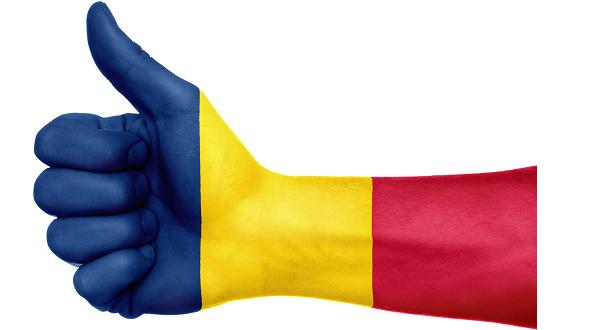
Article(s)
Abolition of the death penalty for terrorism in Chad
By FIACAT, on 30 April 2020
On 28 April 2020, the Chadian National Assembly unanimously voted to abolish the death penalty for crimes of terrorism.
2020
Chad
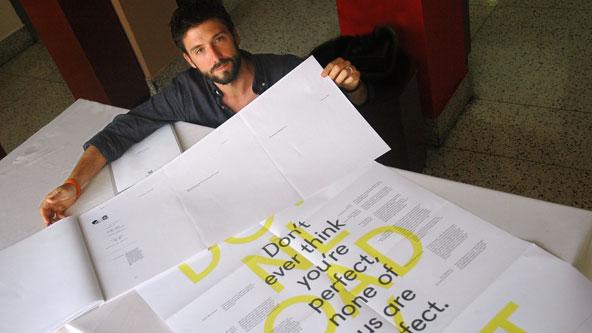
Article(s)
Publishing the final words of the executed to restore their humanity
By Thomas Hubert, on 16 October 2014
Publisher Joshua Herman and photographer Marc Asnin want to issue thousands of American schools with a book presenting the final statements of executed prisoners in an attempt to remind supporters and opponents of the death penalty alike that it targets human beings.
2014
Public Opinion
United States
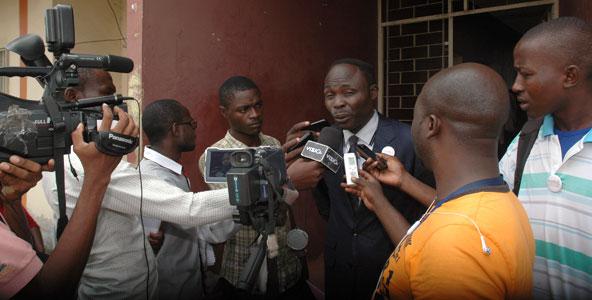
Article(s)
Working with journalists to expose the death penalty’s flaws
By World Coalition Against the Death Penalty, on 30 June 2014
Journalists and activists held a joint practical workshop during the World Coalition’s recent AGM in Puerto Rico to discuss ways of getting the abolitionist message across in the media.
2014
Public Opinion
Puerto Rico
Article(s)
Training consultant
By World Coalition, on 21 January 2016
The World Coalition calls for applications for a consultant in charge of planning a training session in Sub-Saharan Africa.
2016
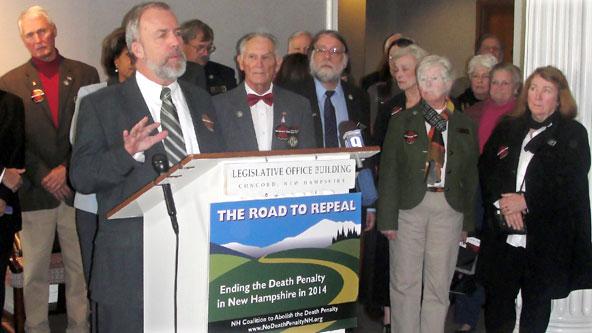
Article(s)
New conservative voices crucial in New Hampshire repeal campaign
By Thomas Hubert, on 26 February 2014
After a House committee passed a bill abolishing capital punishment on 11 February, State representative Renny Cushing explains the next steps as the World Coalition’s Steering Committee prepares to meet in New Hampshire in April.
2014
United States
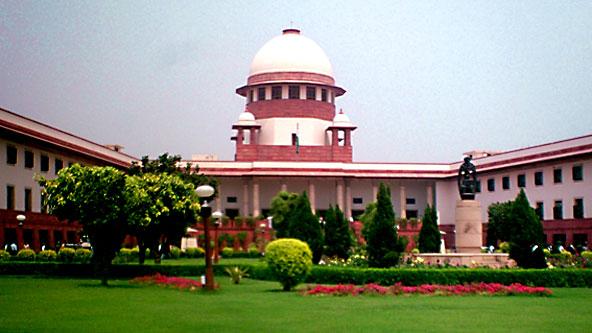
Article(s)
Indian ruling highlights importance of next World Day
By Emile Carreau, on 3 February 2014
On 21 January, India’s Supreme Court formally banned the execution of mentally ill prisoners and in doing so highlighted why this year’s World Day against the Death Penalty, which is dedicated to issues of mental health, is so important.
2014
India
Intellectual Disability
Mental Illness
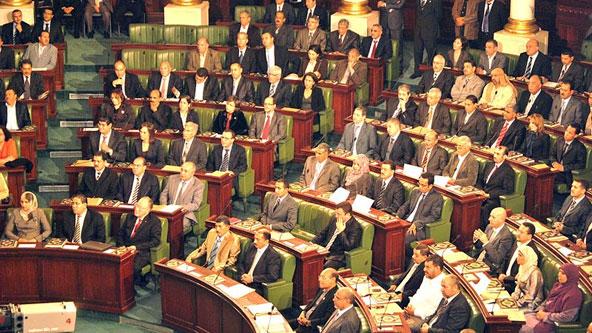
Article(s)
Tunisian Constitution enshrines right to life but upholds death penalty
By Delphine Judith, on 28 January 2014
After weeks of debates, Tunisia has adopted a new Constitution. As expected by local abolitionists, the National Constituent Assembly (NCA) passed a text allowing capital punishment on 26 January 2014.
2014
Moratorium
Tunisia
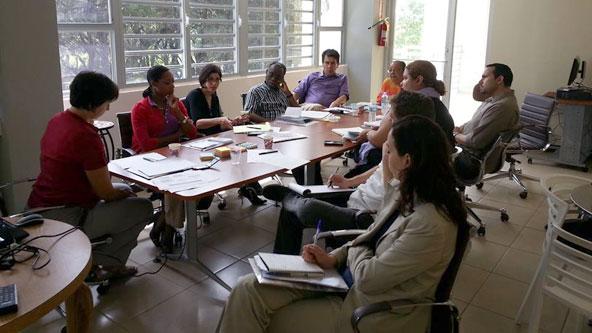
Article(s)
Caribbean network fleshes out plans for abolition
By Emile Carreau, on 16 January 2014
The Executive Committee of the Greater Caribbean for Life (GCL) network, constituted in October 2013, met in San Juan, Puerto Rico on January 11 and 12 to devise strategies to combat the death penalty in the region.
2014
Moratorium
Trinidad and Tobago
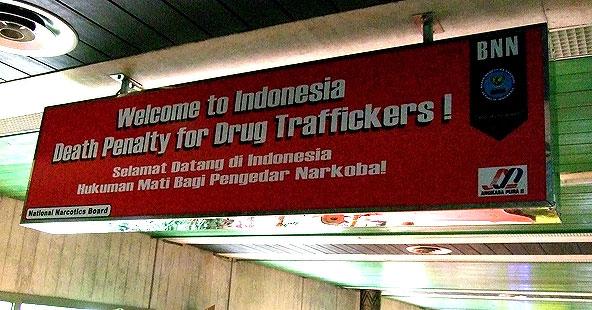
Article(s)
Indonesian executions on the rise as election looms
By Emile Carreau, on 10 December 2013
Executions have multiplied in Indonesia throughout 2013. World Coalition local member organization KontraS sees political motivations behind the end of a four-year moratorium.
2013
Indonesia
Indonesia
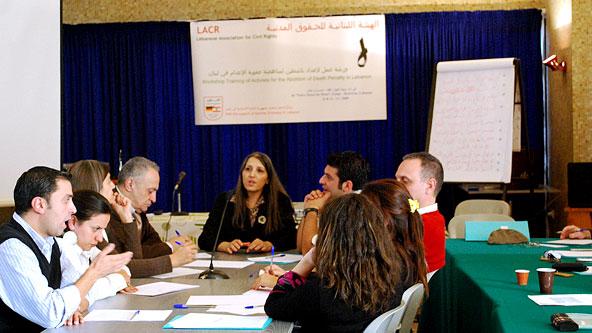
Article(s)
“Catastrophic” conditions on Lebanon’s death row
By Delphine Judith, on 31 May 2013
Ogarit Younan is a co-founder of the Lebanese Association for Civil Rights, which has just joined the World Coalition. She takes stock on the death penalty and abolitionist progress in Lebanon.
2013
Death Row Conditions
Lebanon
Article(s)
Finance and Administration Manager
By World Coalition Against the Death Penalty, on 14 May 2020
The World Coalition Against the Death Penalty recruits a Finance and Administration Manager for a full time permanent position starting as soon as possible.
2020
Article(s)
Program Officer
By PGA, on 22 February 2016
PGA is recruiting a Programme Officer for its Hague office.
2016
Article(s)
Logistics and Partnership Manager
By World Coalition Against the Death Penalty, on 3 February 2020
The World Coalition Against the Death Penalty recruits a logistics and partnership manager for a full time permanent position starting as soon as possible.
2020
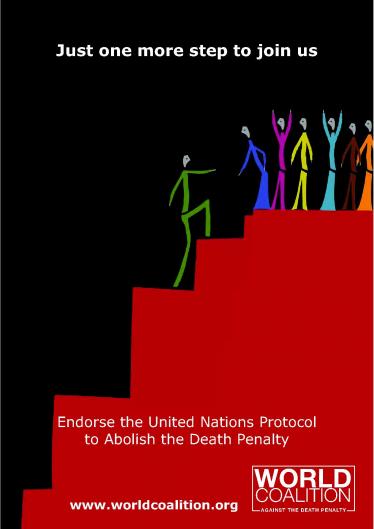
Just One More Step: Ratifying International and Regional Protocols
on 28 March 2022
As of 10 June 2024, 91 of the 173 States parties to the ICCPR have ratified or acceded to its Second Optional Protocol aiming at the abolition of the death penalty, most recently Côte d’Ivoire (3 May 2024), Kazakhstan (24 March 2022), Armenia (18 March 2021), Angola (2 October 2019) and the State of […]
2022
Central African Republic
Chad
Congo
Fiji
Ghana
Marshall Islands
Samoa
Sierra Leone
Suriname
Zambia
Article(s)
Small Grant for Activities in the Caribbean
By World Coalition Against the Death Penalty, on 29 August 2019
Call for action on the abolition of the death penalty in Barbados and the Eastern Caribbean States launched by the Greater Caribbean for Life and the World Coalition Against the Death Penalty
2019
Barbados
cropped-favicon.png
on 26 April 2021
https://worldcoalition.org/wp-content/uploads/2021/04/cropped-favicon.png
2021
Article(s)
Program Manager
By World Coalition Against the Death Penalty, on 15 October 2018
The World Coalition Against the Death Penalty recruits a program manager for a full time permanent position starting in January 2019.
2018

Article(s)
Call for tenders for the contracting of travel management services
By World Coalition Against the Death Penalty, on 15 June 2021
The World Coalition requires travel management services, on a non-exclusive basis, for World Coalition staff, members and partners.
2021
Article(s)
Évaluation finale externe d’un projet de 36 mois sur l’abolition de la peine de mort en Afrique
By FIACAT, on 13 March 2018
1. OrganisationLa Fédération internationale de l’Action des chrétiens pour l’abolition de la torture, la FIACAT, est une organisation internationale non gouvernementale de défense des droits de l’homme, créée en 1987, qui lutte pour l’abolition de la torture et de la peine de mort. La Fédération regroupe une trentaine d’associations nationales, les ACAT, présentes sur quatre […]
2018
Article(s)
Video about the death penalty in the Palestinian Territories
By Federica Merenda, on 9 March 2016
Since the establishment of the Palestinian Authority, in 1994, 172 death sentences have been issued in the territories under its authority, of which 30 in the West Bank and 142 in the Gaza Strip, 87 since Hamas gained the control of the area in 2007. The video points out arguments against the death penalty: it is ineffective, irreversible, against human dignity and it has no deterrence effect as proved by the high criminal rate shared by the countries which use it most. Besides, while the Islamic Law regards it as a right of the relatives of the victim, the Shaaria also supports forgiveness and compensation.
2016
State of Palestine
Article(s)
Website Redesign and Development
By World Coalition Against the Death Penalty, on 15 January 2020
The World Coalition Against the Death Penalty’s office in Paris area, France, is currently calling for web development and makeover tenders.
The objective is to award a contract to develop and maintain the World Coalition Against the Death Penalty’s new website, based on technical specifications.
2020
Article(s)
Legal Officer – The Death Penalty Project
By The Death Penalty Project, on 23 January 2018
The Death Penalty Project recruits a Legal Officer.
2018
United Kingdom
Article(s)
Project officer – The Death Penalty Project
By The Death Penalty Project, on 23 January 2018
The Death Penalty Project is recruiting a Project Officer.
United Kingdom
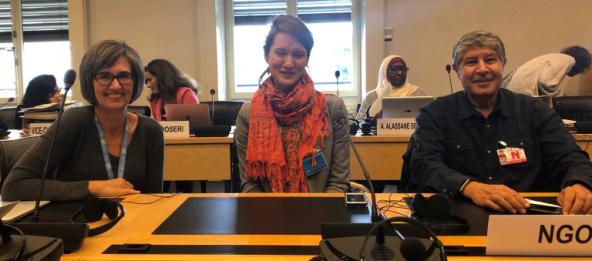
Article(s)
The Rights of Children Whose Parents Are Sentenced to Death – The Case of Tunisia
By Lisa Borden, volunteer with The Advocates for Human Rights, on 30 October 2019
I joined Bronwyn Dudley of the World Coalition Against the Death Penalty, and Choukri Latif of the Coalition tunissiene contre la peine de mort (a Tunisian anti-death penalty NGO), to address the committee regarding Tunisia’s failure to implement the rights of children whose parents have been sentenced to death or were executed.
2019
Juveniles
Tunisia
Article(s)
Call for tenders for printing, design and layout services
By Carlos Valera, on 7 July 2020
The World Coalition requires contracts for printing, design and layout services, visibility items and reprography for any publications that may be required, in addition to materials that may be required with these features.
2020
Document(s)
Philippines – Committee on the Elimination of Discrimination Against Women – Death Penalty – June 2022
on 21 July 2022
2022
NGO report
Philippines
Women
More details Download [ pdf - 443 Ko ]
The Government of the Philippines has taken commendable steps toward protecting and promoting the rights of women overseas Filipino workers (OFWs), but those workers remain vulnerable to exploitation and abuse, and when they come into conflict with the law in their host countries, their vulnerabilities are compounded by linguistic and legal barriers, as well as judicial systems which fail to account for the gendered context in which they allegedly committed criminal acts. The Government of the Philippines should do more to ensure protection of the rights of these women OFWs, particularly when they are at risk of being sentenced to death.
- Document type NGO report
- Countries list Philippines
- Themes list Women
Detailed Factsheet: Women and the Death Penalty
on 1 July 2021
2021
Testimonies2021_v1.0_FR
on 1 July 2021
TESTIMONIALS FROM WOMEN SENTENCED TO DEATH
on 1 July 2021
DroitsHumainsTrans_PDM_v1.1
on 30 June 2021
2021
Trans Rights and Death Penalty Factsheet_V1.0
on 30 June 2021
FR_WCADP_TDR_GenderSensitiveEvaluationWorldDay2021_30.09
on 7 October 2022
Termes de reference – evaluation sensible au genre
2022
EN_WCADP_TDR_GenderSensitiveEvaluationWorldDay2021_30.09
on 7 October 2022
Terms of Reference – Gender sensitive Evaluation

Article(s)
Amnesty 2010 stats: retentionist countries increasingly isolated
on 28 March 2011
Countries which continue to use the death penalty are being left increasingly isolated following a decade of progress towards abolition, Amnesty International has said in its new report Death Sentences and Executions in 2010.
2011
China
Drug Offenses
Egypt
Fair Trial
Indonesia
Iran (Islamic Republic of)
Juveniles
Lao People's Democratic Republic
Libya
Malaysia
Moratorium
Pakistan
Sudan
Thailand
United Arab Emirates
United States
Yemen
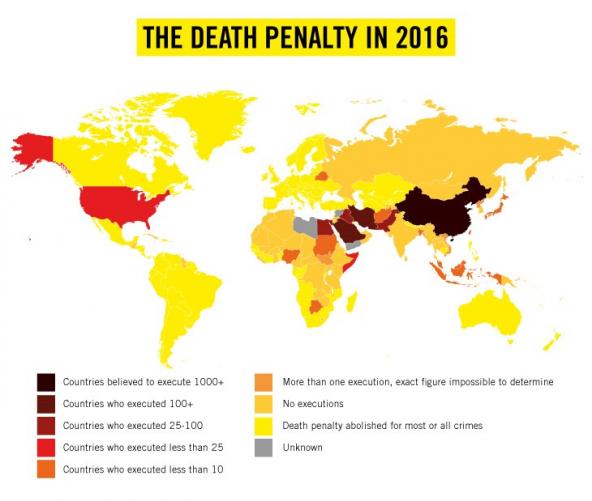
Article(s)
Death Sentences and Executions in 2016
By Amnesty International, on 11 April 2017
Amnesty International published its 2016 global review of the death penalty on Tuesday, April 11th 2017.Excluding China, states around the world executed 1,032 people in 2016. China executed more than all other countries in the world put together, while the USA reached a historic low in its use of the death penalty in 2016.
2017
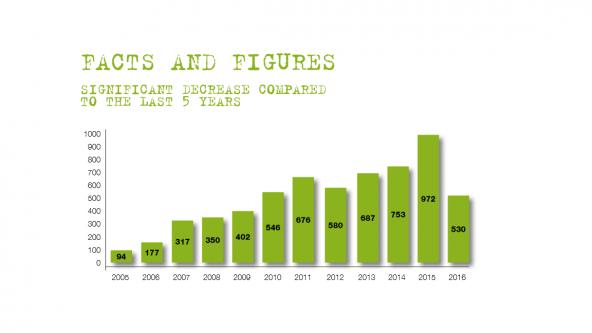
Article(s)
Iran: 2016 a deadly year despite a slight decrease in the executions
By Iran Human Rights, on 6 April 2017
The 9th annual report by Iran Human Rights (IHR)and ECPM (Ensemble contre la peine de mort) on the death penalty in Iran shows that in 2016 at least 530 people were executed in the Islamic Republic of Iran. Although this number is significantly lower than the annual execution numbers from the past five years, Iran remained the country with the highest number of executions per capita.
2017
Iran (Islamic Republic of)
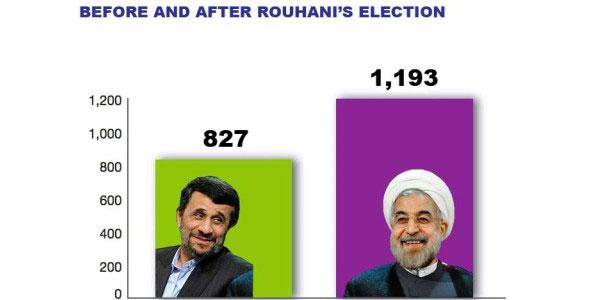
Article(s)
At least 1,193 executions since Hassan Rouhani’s election as president in Iran
on 13 March 2015
The annual report on the death penalty in 2014 shows that the Iranian authorities have executed more than 1193 people since the election of President Rouhani in June 2013. This is an average of more than two executions every day.
2015
Iran (Islamic Republic of)
Article(s)
“We go to the prisoner’s village to question the witnesses”
on 28 February 2010
Caroline Muchuma, contributor to the round table on the vital role played by lawyers in defending those sentenced to death, describing her role as a lawyer and campaigner in Uganda.
2010
Legal Representation
Uganda
N2245271
on 12 October 2022
2022
Article(s)
Algerian MPs want to abolish the death penalty
on 9 December 2008
A group of Algerian parliamentarians has filed a bill aimed at abolishing capital punishment. The World Coalition supports their campaign to have the proposed legislation passed.
2008
Algeria
Moratorium
Advisory on the Increased Vulnerabilty of Women Migrant Workers on Death Row
on 3 December 2021
2021
EN_WCADP_2020ActivityReport
on 9 September 2021
2021

Article(s)
Abolition of the death penalty must be an integral part of crime prevention programmes and criminal justice reforms
By Amnesty International, on 5 March 2021
As the Fourteenth United Nations Congress on Crime Prevention and Criminal Justice is about to begin in Kyoto, Japan, the undersigned organizations urge the Economic and Social Council (ECOSOC) and its subsidiary bodies, including the UN Office on Drugs and Crime (UNODC); and all UN member states, including the Congress host country Japan, to make […]
2021
Public Opinion
ISSUES AND RECOMMENDATIONS TO RAISE WITH THE GOVERNMENT OF MALAWI
on 27 May 2021
2021
Poster EN World Day Against the Death Penalty 2021
on 9 June 2021
2021
WD2021_Kit_de_mobilisation_FR
on 9 June 2021
Mobilization Kit World Day 2021 – EN
on 9 June 2021
FRLetterIACHR
on 14 October 2020
2020
ESLetterIACHR
on 14 October 2020
ENLetterIACHR
on 14 October 2020
FRLetterIACHR
on 14 October 2020
WCADP_Bylaws_EN
on 10 November 2020
2020
WD2020_MobilizationKit_AR
on 10 September 2020
2020
Call Tender Evaluation 2021
on 15 June 2021
2021
FR-WCADP-Programme2021GA
on 15 June 2021
Program of the 18 June 2021 General Assembly
on 15 June 2021
FACTS AND FIGURES 2020/2021
on 30 June 2021
2021
Call Tender Travels
on 15 June 2021
2021
2020 WORLD DAY REPORT NO ANNEX
on 9 June 2021
2021
JM2020_RAPPORT_FR_SANS_ANNEXE-v1.0
on 9 June 2021
Document(s)
The Death Penalty for Drug Crimes in Asia
By World Coalition Against the Death Penalty / Fédération Internationale des Ligues des Droits de l'Homme (FIDH), on 1 January 2015
2015
NGO report
More details See the document
The report, published for the 13th World Day against the Death Penalty, analyzes how the death penalty is applied for drug-related crimes in Asia, evaluates the most common arguments used by governments to justify their use of this inhumane and illegal measure, and exposes why these arguments are unjustified. Asia is the continent that executes the most people for drug-related crimes. However, the death penalty has not proven to be effective in reducing drug crimes in Asia.
- Document type NGO report
- Themes list Drug Offences, Country/Regional profiles,
Document(s)
Women and the Death Penalty in Iran
By Iran Human Rights, on 8 October 2021
2021
NGO report
Iran (Islamic Republic of)
Women
More details See the document
In observation of the 2021 World Day Against the Death Penalty dedicated to women, Iran Human Rights is providing a report on the women executed in Iran over the last 12 years (2010-2021). The executions in this period are by no means representative of the Islamic Republic of Iran’s complete history of executing women; the number of female political prisoners executed in the 1980s must be acknowledged due to their sheer volume and abhorrent nature. But even today, there is ample evidence of their cruel and inhuman treatment of female prisoners, which will be highlighted in this report.
- Document type NGO report
- Countries list Iran (Islamic Republic of)
- Themes list Women
Document(s)
Leaflet Women and the Death Penalty
By World coalition against the death penalty, on 2 October 2023
2023
World Coalition
Gender
frMore details Download [ pdf - 1448 Ko ]
- Document type World Coalition
- Themes list Gender
- Available languages Brochure femme et peine de mort

Member(s)
Abdorrahman Boroumand Center for the Promotion of Human Rights and Democracy in Iran
on 30 April 2020
Abdorrahman Boroumand Center previously know as Abdorrahman Boroumand Foundation Mandate and goals : Promoting universal human rights in Iran and documenting the violation of the right to life in the Islamic Republic of Iran Kind of actions : Creation of an online memorial to the victims of the violation of the right to life in […]
2020
Iran (Islamic Republic of)
Document(s)
Leaflet LGBTQIA+ people and the Death Penalty
By World coalition against the death penalty, on 2 October 2023
2023
World Coalition
Gender
frMore details Download [ pdf - 861 Ko ]
- Document type World Coalition
- Themes list Gender
- Available languages Brochure personnes LGBTQIA+ et peine de mort

Member(s)
American Friends Service Committee
on 30 April 2020
The American Friends Service Committee (AFSC) carries out service, development, social justice and peace programs throughout the world. It was founded by Quakers during World War 1 to provide conscientious objectors with an opportunity to aid civilian war victims. The AFSC’s work is based on the Quaker belief in the worth of every person, and […]
2020
United States

Member(s)
Chaml (Non-Violent Non-Sectarian Lebanese Citizenly Youth)
on 30 April 2020
Mandate and goals : Spread the culture of non-violence, non-sectarianism and human rights and advocate for political/legal change that is relevant to our values. We have five principles: Non-sectarianism, Non-violence, Justice, Democracy, and Sovereignty. Kind of actions : – Raise awareness, protest, and lobby to pass the Lebanese Personal Status law – Document sectarian hate […]
Lebanon
Document(s)
Facts and Figures 2010
By World Day against the death penalty , on 10 October 2010
2010
Campaigning
Trend Towards Abolition
frMore details Download [ pdf - 81 Ko ]
Facts and Figures 2010
- Document type Campaigning
- Themes list Trend Towards Abolition
- Available languages Faits et chiffres 2010
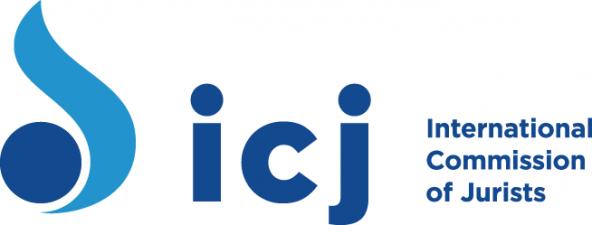
Member(s)
International Commission of Jurists
on 30 April 2020
The International Commission of Jurists (ICJ) is dedicated to promoting rule of law and advancement of human rights around the world. The ICJ statute provides: The Commission carries out activities at the global, regional, national and local level and in particular takes effective steps to: 1. Support and advance the Rule of Law and human […]
2020
Switzerland

Member(s)
International Federation of ACATs (FIACAT)
on 30 April 2020
The International Federation of ACATs (Action by Christians for the Abolition of Torture), FIACAT, is an international non-governmental human rights organisation, set up in 1987, which works towards the abolition of torture and the death penalty. The Federation brings together some thirty national associations, the ACATs, present in four continents. FIACAT – representing its members […]
France
Document(s)
Facts and Figures 2011
By World Coalition against the death penalty , on 10 October 2011
2011
Campaigning
Trend Towards Abolition
frMore details Download [ pdf - 100 Ko ]
Facts and Figures 2011
- Document type Campaigning
- Themes list Trend Towards Abolition
- Available languages Faits et chiffres 2011
Document(s)
Facts and Figures 2013
on 10 October 2013
2013
Campaigning
Trend Towards Abolition
aresMore details Download [ pdf - 115 Ko ]
Facts and Figures world day against the death penalty 2013
- Document type Campaigning
- Themes list Trend Towards Abolition
- Available languages Faits et chiffres 2013PENA DE MUERTE HECHOS Y DATOS
Document(s)
The Death Penalty in 2010: Year End Reports
By Death Penalty Information Center, on 1 January 2010
2010
NGO report
More details See the document
The death penalty continued to be mired in conflict in 2010, as states grappled with an ongoing controversy over lethal injections, the high cost of capital punishment, and increasing public sentiment in favor of alternative sentences. Executions dropped by 12% compared with 2009, and by more than 50% since 1999. The number of new death sentences was about the same as in 2009, the lowest number in 34 years. —– For other DPIC year end reports (from 1995 – 2009) please visit: http://www.deathpenaltyinfo.org/reports
- Document type NGO report
- Themes list Trend Towards Abolition,
Document(s)
Death sentences and executions in 2009
By Amnesty International, on 1 January 2010
NGO report
arfresMore details See the document
This document summarizes Amnesty International’s global research on the use of the death penalty in 2009. More than two-thirds of the countries of the world have abolished the death penalty in law or in practice. While 58 countries retained the death penalty in 2009, most did not use it. Eighteen countries were known to have carried out executions, killing a total of 714 people; however, this figure does not include the thousands of executions that were likely to have taken place in China, which again refused to divulge figures on its use of the death penalty. For an update to this document please see http://www.amnesty.org/en/library/info/ACT50/005/2010/en
- Document type NGO report
- Themes list Statistics,
- Available languages أحكام الإعدام وعمليات الإعدام في عام 2009CONDAMNATIONS À MORT ET EXÉCUTIONS RECENSÉES EN 2009CONDENAS A MUERTE Y EJECUCIONES 2009
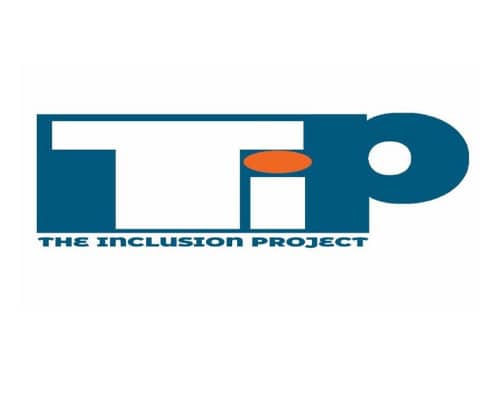
Member(s)
The Inclusion Project
on 13 September 2024
The Inclusion Project (TIP) is a legal services provider founded in 2019 and registered in Nigeria as The Inclusion Project.
2024
Nigeria
Article(s)
800 cities light up for life
on 17 November 2008
On November 30, monuments in nearly 800 cities across the globe will light up to celebrate “Cities for Life – Cities Against the Death Penalty”.
2008
Italy
Public Opinion

Article(s)
Indonesia: execution for drug crimes is no solution
By World Coalition Against the Death Penalty, on 26 January 2015
In an open letter, the World Coalition and its members, including KONTRAS and Amnesty International, condemn the Indonesian government’s politicizing of the death penalty to show its commitment to eradicating drug-related crimes. Recent resumptions of executions show one thing, they are carried out for political reasons only: in Pakistan to show that it is tough on terrorism, Jordan that it tough on crime and Indonesia that it is tough on drugs. Instead, those states should abolish the death penalty to show their commitment to upholding human rights. The next World Day against the Death Penalty will be dedicated to the issue of capital drug crimes.
2015
Drug Offenses
Indonesia
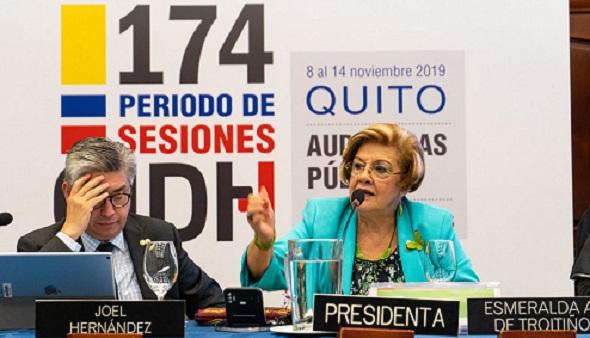
Article(s)
The Inter-American system commits to see the end of the death penalty
By World Coalition Against the Death Penalty, on 13 January 2020
In November 2019, Ecuador hosted a series of high level meetings of the Organisation of American States (OAS), including the Third Forum of the Inter-American Human Rights System and the 174th Period of Sessions of the Inter-American Commission on Human Rights (IACHR), during which abolition of the death penalty was on the agenda.
2020
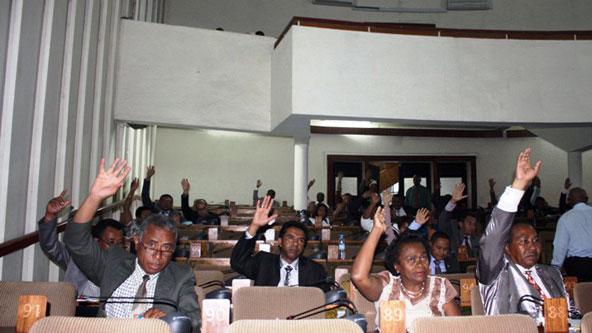
Article(s)
Madagascar’s MPs abolish the death penalty
on 10 December 2014
The National Assembly of Madagascar adopted a bill that abolishes the death penalty on 10 December, World Human Rights Day.
2014
Madagascar
Madagascar
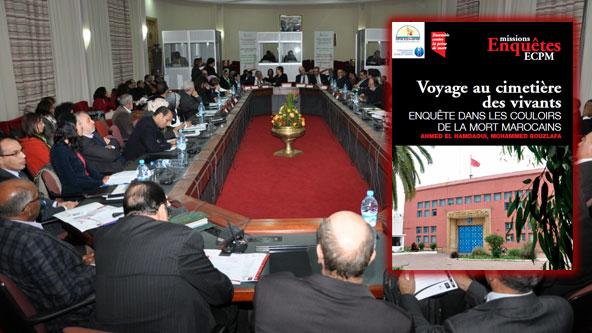
Article(s)
Abolitionist movement shifts up a gear in Morocco
By Thomas Hubert, on 20 December 2013
Through engagement with members of Parliament, the publication of an unprecedented report on death row conditions and the launch of a new website, the Moroccan abolitionist movement is entering a new dimension.
2013
Mental Illness
Morocco
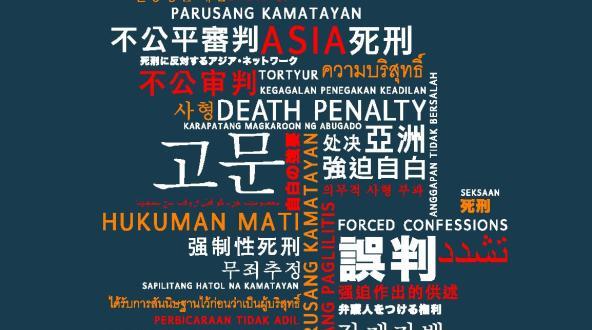
Article(s)
Asia: Stop executions and unfair trials
By ADPAN, on 6 December 2011
A hard-line group of Asian countries are defying the global trend against the death penalty and putting to death thousands of people after unfair trials every year, the Anti-Death Penalty Asia Network (ADPAN) said today in a new report.
2011
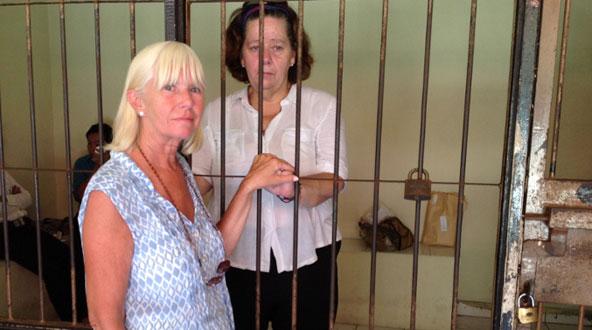
Article(s)
Briton’s death sentence puts Indonesians at risk
By KontraS, on 31 January 2013
The World Coalition’s Indonesian member organization KontraS has raised the international consequences of Lindsay Sandiford’s high-profile capital case in an opinion article published by the Jakarta Globe newspaper, calling on the country to abolish the death penalty.
2013
Drug Offenses
Indonesia
Moratorium
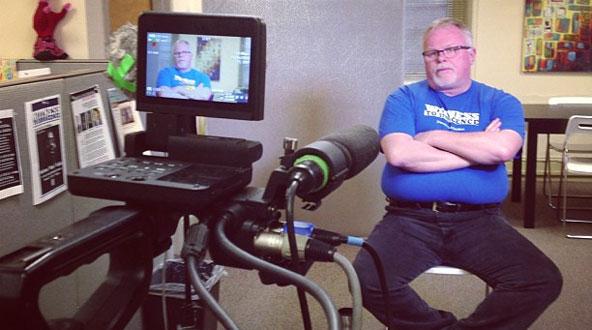
Article(s)
Ten films to expose innocence on death row
By Laura Shacham - One for Ten, on 29 April 2013
One For Ten is a series of short documentary films telling the stories of innocent people who were on death row in the United States, with support from the World Coalition and several of its members.
2013
Innocence
United States
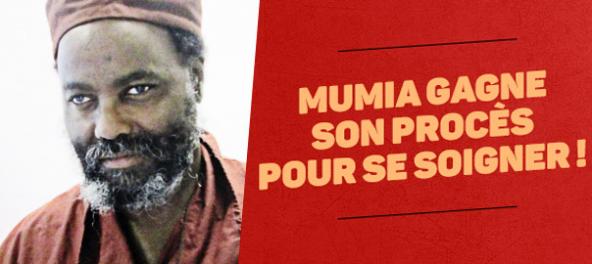
Article(s)
Federal Justice orders the prison administration to immediately provide African-American journalist Mumia Abu-Jamal with treatment
By French Collective "Free Mumia", on 18 January 2017
On the 3rd January of this year, a Federal judge ordered Pennsylvania’s prison administration to immediately provide Mumia Abu-Jamal with medication to treat his hepatitis C infection, justifying his decision in these terms: “budgetary constraints cannot outweigh the Eighth Amendment’s constitutional guarantee of adequate medical care.”
2017
Cruel, Inhuman and Degrading Treatment and Punishment
United States
Article(s)
Human Rights Advocacy Officer
By Harm Reduction International, on 17 August 2017
Harm Reduction International is currently seeking to recruit Human Rights Advocacy Officer. Working as a member of the Campaigns and Advocacy Team.
2017
Document(s)
THE RACIAL GEOGRAPHY OF THE FEDERAL DEATH PENALTY
By Robert J. Smith / Ben Cohen / Washington Law Review, on 1 January 2010
2010
Article
United States
More details See the document
Scholars have devoted substantial attention to both the overrepresentation of black defendants on federal death row and the disproportionate number of federal defendants charged capitally for the murder of white victims. This attention has not explained (much less resolved) these disquieting racial disparities. Little research has addressed the unusual geography of the federal death penalty, in which a small number of jurisdictions are responsible for the vast majority of federal death sentences. By addressing the unique geography, we identify a possible explanation for the racial distortions in the federal death penalty: that federal death sentences are sought disproportionately where the expansion of the venire from the county to the district level has a dramatic demographic impact on the racial make-up of the jury. This inquiry demonstrates that the conversation concerning who should make up the jury of twelve neighbors and peers—a discussion begun well before the founding of our Constitution—continues to have relevance today. Louisiana, Missouri, Virginia and Maryland referred to.
- Document type Article
- Countries list United States
- Themes list Networks,
Document(s)
How the European Union Works: Your guide to the EU institutions
By European Union, on 1 January 2007
2007
Working with...
fresMore details See the document
The European Union (EU) is a family of democratic European countries working together to improve life for their citizens and to build a better world. The following chapters describe the Treaties, the EU institutions and the other bodies and agencies, explaining what each entity does and how they interact.
- Document type Working with...
- Themes list Networks,
- Available languages Comment fonctionne l'Union européenneEl Funcionamiento de la Unión Europea: Guía del Ciudadano sobre las Instituciones de la UE
Document(s)
Death Penalty in the Palestinian Legal System A Legal review
By Maan Shihda Ideis / Independent Commission for Human Rights , on 1 January 2010
2010
NGO report
More details See the document
This study analyzes the Palestinian legislations in light of the UN procedures and criteria on the issuance, imposition or execution of death sentences. The study is divided into two main parts, each of which is dedicated to either the international or national legislation on death penalty. This part is divided into two main chapters. Chapter One addresses the substantive provisions on death penalty and Chapter Two is concerned with the procedural provisions. This classification is inline with the international efforts for the abolition of death penalty, particularly because the UN, in its capacity as the representative of the international community, has not banned the capital punishment but opted for the introduction of a number of legal actions for the States to consider when they include such penalty in their legislations, or when such sentences are issued by the courts or actually executed. Thus, the procedural and the substantive provisions are addressed separately in this study, both at the international and national levels.
- Document type NGO report
- Themes list International law,
Document(s)
Death Penalty in the Palestinian Legal System: A Legal Review
By Maan Shihda Ideis / Independent Commission for Human Rights , on 1 January 2010
International law - Regional body
arMore details See the document
ICHR carried out this review in order to assist the PNA in its attempts to join international community that did abolish death penalty from their legal system. In order for the PNA to ratify the various international conventions stipulating respect for the right to life and prohibits the execution of every human being. In this study, ICHR aims to define the practical steps that the PNA should take in order to abolish death penalty from the Palestinian legal system. According to Article (10) of the Basic Law of 2002, the human rights and fundamental freedoms shall be binding and respected by the PNA which shall, without delay, accede to the regional and international declarations and instruments that protect human rights, especially those international charters and resolutions that governing the right to life, the abolition of death penalty, and/or placing restrictions on the procedures of its execution.
- Document type International law - Regional body
- Themes list Networks,
- Available languages مراجعة قانونية لعقوبة الإعدام في سطيني
Document(s)
A Perverse and Ominous Enterprise: The Death Penalty and Illegal Executions in Saudi Arabia
By Helena Kennedy, on 1 January 2019
2019
International law - Regional body
More details See the document
The evidence reviewed demonstrates frequent and heavy-handed recourse to the death penalty by Saudi Arabia in recent months. At least 149 people were executed in 2018, with at minimum 46 remaining on death row at the end of the year. A significant proportion of those executed were political dissidents, and a number were children at the time of their alleged offending. Each of these features connotes a grave violation of international human rights norms.
- Document type International law - Regional body
Document(s)
The Death Penalty in the Arab World 2011
By Alejandro Tagarro Cervantes / Amman Center for Human Rights Studies, on 1 January 2011
2011
NGO report
More details See the document
This annual report drafted by ACHRS aims to proportionate an analytical studio of the situation of the death penalty and capital punishment in the Arab World in 2011, and includes detailed information about the 21 countries which constitute the Arab World. It also contains tables and a conclusive reflection on the current state of capital punishment.
- Document type NGO report
- Themes list Country/Regional profiles,
Document(s)
On the possibility of Viet Nam ratifying the Second Optional Protocol to the ICCPR aiming at the Abolition of the Death Penalty
By European Union / United Nations Development Programme / Nguyen Thi Thanh Hai / Nguyen Van Hoan / Nguyen Minh Khue, on 1 January 2019
2019
International law - United Nations
enMore details See the document
This study aims to assess the possibility of Viet Nam ratifying the Second Optional Protocol to the International Covenant on Civil and Political Rights (ICCPR) aiming at the abolition of the death penalty. It analyzes: (a) the current international legal framework and the process of legal development to abolish the death penalty in selected countries, (b) the compatibility between the existing regulations on the death penalty in the Vietnamese legal system and the Second Optional Protocol of the ICCPR, and (c) the assessment of feasibility for abolition of the death penalty in Viet Nam.
- Document type International law - United Nations
- Themes list International law, Country/Regional profiles,
- Available languages Viêt Namese : Khả năng của Việt Nam gia nhập Nghị định thư tùy chọn thứ hai về bãi bỏ hình phạt tử hình theo Công ước quốc tế về các quyền dân sự và chính trị (ICCPR)
Document(s)
Viêt Namese : Khả năng của Việt Nam gia nhập Nghị định thư tùy chọn thứ hai về bãi bỏ hình phạt tử hình theo Công ước quốc tế về các quyền dân sự và chính trị (ICCPR)
By European Union / United Nations Development Programme / Nguyen Thi Thanh Hai / Nguyen Van Hoan / Nguyen Minh Khue, on 8 September 2020
2020
NGO report
Viet Nam
enMore details See the document
Nghiên cứu này nhằm đánh giá khả năng Việt Nam phê chuẩn Nghị định thư không bắt buộc thứ hai đối với Công ước quốc tế về các quyền dân sự và chính trị (ICCPR) nhằm xóa bỏ án tử hình. Nó phân tích: (a) khung pháp lý quốc tế hiện hành và quá trình phát triển pháp lý để xóa bỏ án tử hình ở các quốc gia được chọn, (b) sự tương thích giữa các quy định hiện hành về án tử hình trong hệ thống pháp luật Việt Nam và Nghị định thư tùy chọn thứ hai của ICCPR và (c) đánh giá tính khả thi để bãi bỏ án tử hình ở Việt Nam.
- Document type NGO report
- Countries list Viet Nam
- Themes list International law, Country/Regional profiles,
- Available languages On the possibility of Viet Nam ratifying the Second Optional Protocol to the ICCPR aiming at the Abolition of the Death Penalty
Document(s)
The importance of raising awareness among ambassadors to the African Union on the draft African Protocol on abolition of the death penalty
By FIACAT / Xavière Prugnard, on 1 January 2019
2019
Multimedia content
frMore details See the document
FIACAT press release about the awareness raising workshop for permanent representatives to the African Union.
- Document type Multimedia content
- Themes list International law, Trend Towards Abolition, World Coalition Against the Death Penalty,
- Available languages L'importance de la sensibilisation des ambassadeurs auprès de l'Union africaine sur le projet de Protocol africain sur l'abolition de la peine de mort
Document(s)
Japanese : 死刑囚の子ども達の 未来に向けて
By Oliver Robertson / Quaker United Nations Office, on 8 September 2020
2020
NGO report
enarfafresMore details See the document
本レポートは,初めに死刑囚の子どもについての基本的情報,すなわち,親が刑事司法制度において裁かれるに全過程を通じて現れる諸問題を提示する。次に,一般的な受刑者の子どもが直面する問題点との類似性を踏まえつつ,死刑囚の子どものケースは異なるものであることに焦点を当てる。世界における受刑者の子どもが置かれた状況の詳細については, 勧告や望ましい実践例も含め,QUNO発刊のCollat-eralConvicts (2012) を参照していただきたい。第三に,死刑囚の子どもだけが体験する根本的に特有な問題点を検討する。本レポートは,限られた数の勧告のみを掲示している。これは,網羅的であることを意図するのではなく,前向きな展開が明確な分野の勧告のみを取り上げたためである。
- Document type NGO report
- Available languages Lightening the Load of the Parental Death Penalty on Childrenتخفيف العبء عن الأطفال المحكوم آباؤهم أو أمهاتهم بالإعدامکاهش بار مجازات اعدام پدر یا مادر برای فرزندانAlléger le fardeau de la condamnation à mort d’un parent sur les enfantsCómo aliviar la carga que supone para los menores la condena a muerte de un(a) progenitor(a)
Document(s)
Lightening the Load of the Parental Death Penalty on Children
By Oliver Robertson / Quaker United Nations Office, on 1 January 2013
2013
NGO report
enarfafresMore details See the document
This paper begins by providing some basic information about children of parents sentenced to death, issues that persist through the whole of a parent’sinteraction with the criminal justice system. Next, it looks at issues that aresimilar to those faced by other children of prisoners, but focuses on the ways inwhich children of parents sentenced to death are different. For a more detailedaccount of the situation of children of prisoners worldwide, including recommendations and examples of good practice, read QUNO’s 2012 paperCollateral Convicts. Thirdly, the fundamentally different issues are considered, thoseonly children of parents sentenced to death experience. There are a limitednumber of recommendations included throughout: these are not intended to becomprehensive, instead only covering those areas where there is already clarity about a positive way forward.
- Document type NGO report
- Themes list Murder Victims' Families,
- Available languages Japanese : 死刑囚の子ども達の 未来に向けてتخفيف العبء عن الأطفال المحكوم آباؤهم أو أمهاتهم بالإعدامکاهش بار مجازات اعدام پدر یا مادر برای فرزندانAlléger le fardeau de la condamnation à mort d’un parent sur les enfantsCómo aliviar la carga que supone para los menores la condena a muerte de un(a) progenitor(a)

